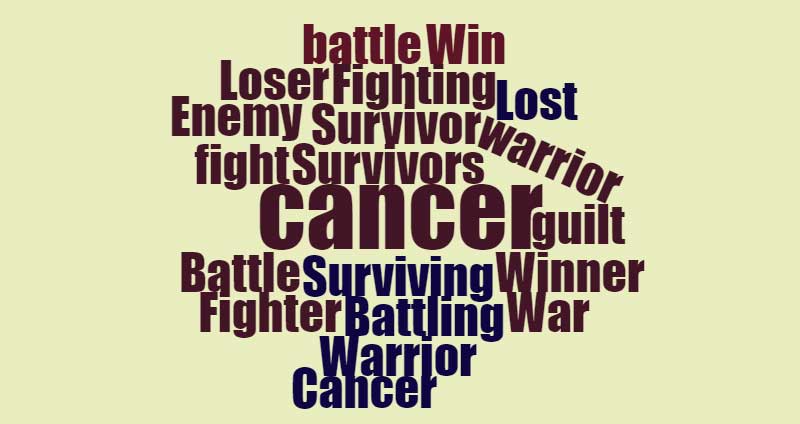The language of cancer
The history of military language to describe cancer inspires some, burdens others

Why is it that people often use terms associated with war when they’re talking about cancer? More so than other illnesses, you’re likely to hear it described as a "battle."
And, if someone passes away from their disease -- such as the recent high profile instances of politician John McCain or singer Aretha Franklin -- it is reported that they "lost their battle" with cancer.
Michelle Riba, M.D., director of the PsychOncology Program at the University of Michigan Rogel Cancer Center, suggests that using this type of language can put an unfair burden on some cancer patients.
After all, cancer and its treatment can be grueling. Patients can experience fatigue, nausea or other side effects that make day-to-day living difficult, let alone allow them to muster enough energy or enthusiasm for the "fight of their life."
"This has become common in our lexicon, and we read about it, yet it is very negative for a lot of people to really think about this as a fight," Riba says. "We are trying to use different language these days, but still we don’t even think about how often these kinds of terms are used in reading and watching TV."
Riba points out that it is far less common to describe other illnesses, such as heart disease or diabetes, using language connected to the military.
Some history: "The War on Cancer"
In 1971, President Richard Nixon declared the "war on cancer," which had become the second leading cause of death in the United States after heart disease. In addition to establishing the National Cancer Institute, the war on cancer included the creation of cancer centers, dedicated research teams and a renewed financial commitment to understanding cancer cells in order to develop new treatments.
By May 1971, Nixon had secured an additional $100 million in funding for the purpose of seeking a cure for cancer.
The news media and health care organizations reported on Nixon’s declared war against a dangerous illness. Over time, using militaristic language connected to the disease was common.
Some patients want to battle, others don't
It is not to say that many patients aren’t inspired by the idea they are fighting for their lives. And, if this is the case, patients and their families and loved ones should proceed using the words that connect with getting through treatment and aiming to become healthy.
Riba points out that the needs of individual patients can be varied, not just in how they live their lives with cancer but also in the language that resonates with them.
"For some, referring to cancer as a battle could be motivating: a warrior trying to slay a dragon. It is time, however, that we consider the people who might feel burdened by it and offer some alternative terminology, such as 'living with cancer.'"
And, she adds, "At no time should we refer to someone losing his or her battle with this disease. We are not talking about a battle in a war or a basketball game; we are talking about the entirety of patients’ lives, and they deserve better."
Experts at the Rogel Cancer Center are working on recommended language to use in place of militaristic language.
Continue reading the Spring, 2019 issue of Thrive
